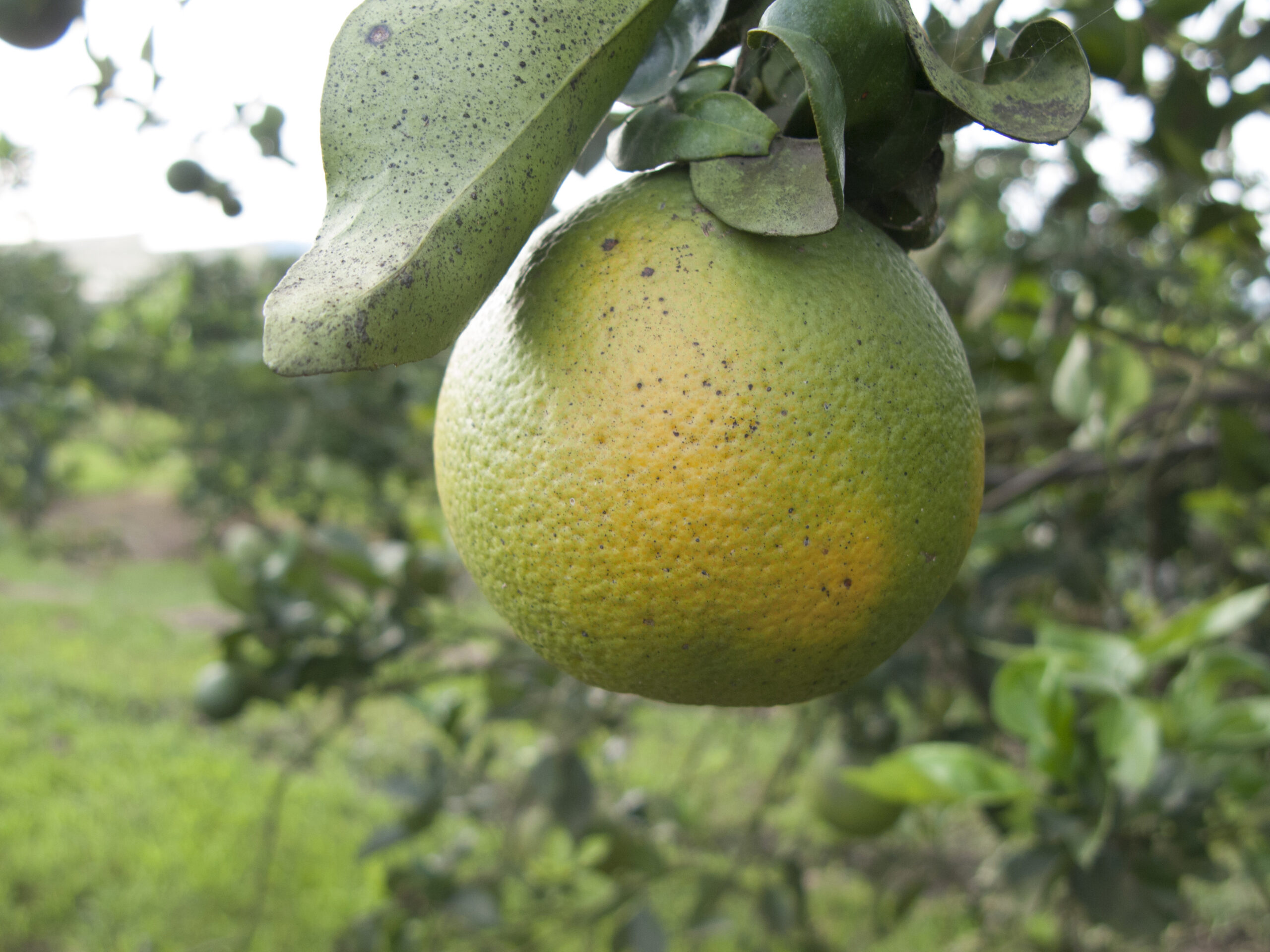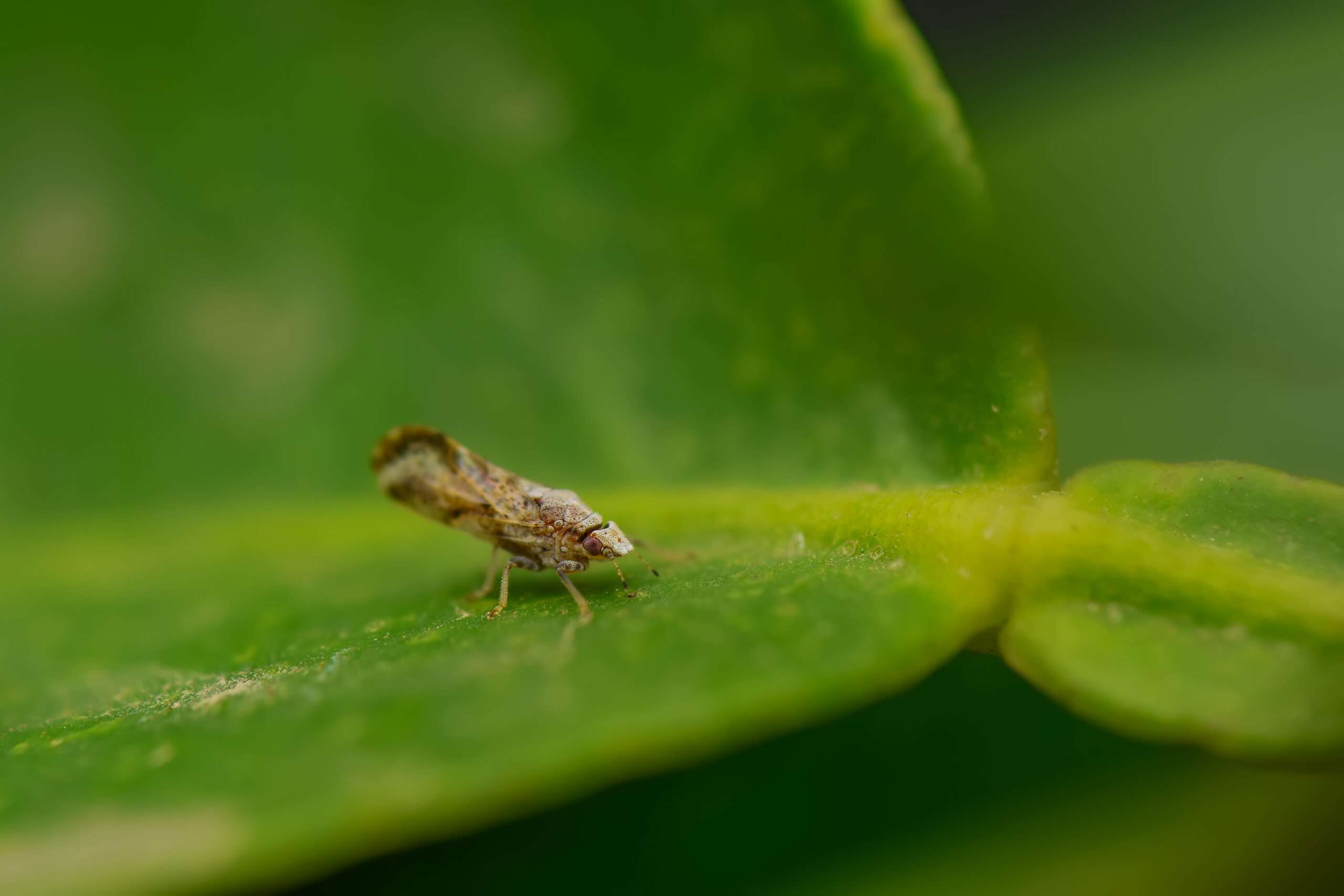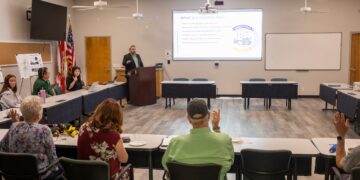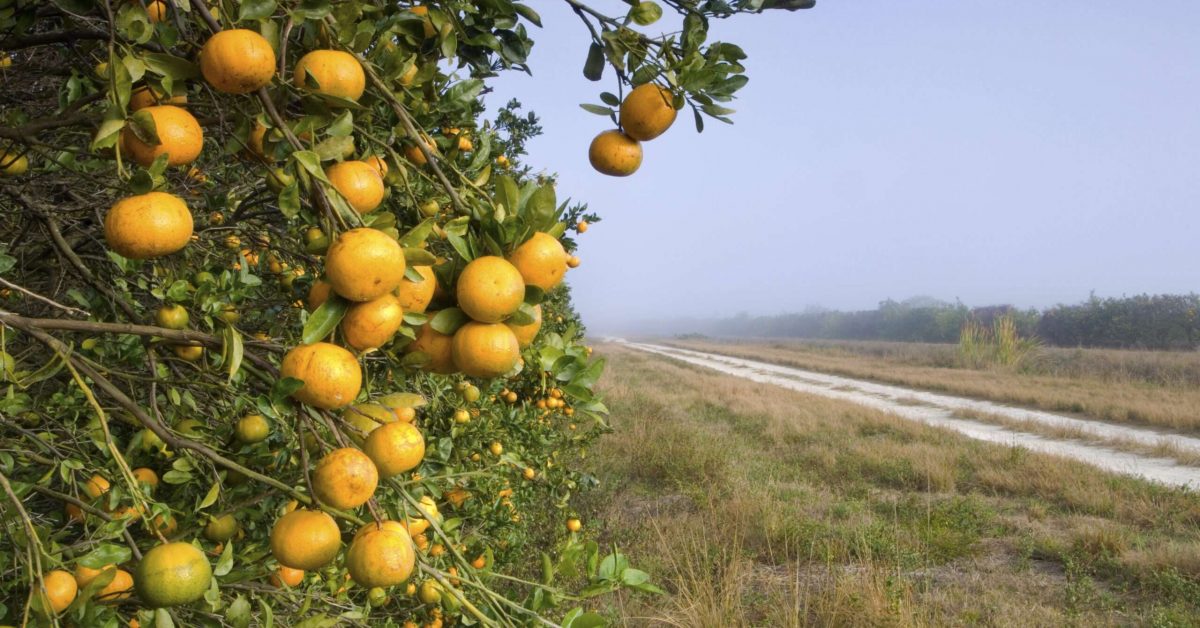Damage from Hurricane Ian compounded an already abysmal projection for the 2023 citrus harvest in Florida. Plus, the storm followed years of damage to the fruit trees thanks to a disease called citrus greening, formally known as Huanglongbing or HLB.
But the 2022-2023 harvest turned out even worse than experts anticipated, dropping to the lowest yields for the Sunshine State since 1936.

Steve Smith
“Without greening, you could recover from a hurricane a lot faster,” said Steve Smith, president of the Gulf Citrus Growers Association. “Greening just makes it that much harder to recover from.”
Initial projections for this year’s citrus harvest—which includes oranges, grapefruit and specialty citrus such as tangerines and tangelos—took both the effects of citrus greening and the hurricane into effect when first issued in 2022. That estimate was for about 18 million boxes of oranges alone.
But final estimates for the 2022-2023 season according to the U.S. Department of Agriculture showed just 15.85 million boxes of oranges,1.81 million boxes of grapefruit and 480,000 boxes of tangerines and tangelos. The results represent a 60% drop from the previous season.
“We certainly didn’t think we were going to be down over 60% this year, even with citrus greening,” said Matt Joyner, CEO of Florida Citrus Mutual, a statewide trade organization for the industry.
By comparison, the state’s peak production for the 1997-98 season produced 244 million boxes of oranges, according to a July release by Florida Citrus Mutual.
The University of Florida first estimated losses to commercial citrus producers in the state at between $417.9 and $675.6 million.
“That estimated damage is lost revenue for the season, as well as tree damage and physical damage to buildings and things like that,” Smith said.
Several strategies are in the works to protect Florida’s crops, beginning with a years-long effort to breed and plant trees that are resistant to citrus greening. The disease was first introduced to the state in 2005 and is spread from tree to tree by an invasive insect.
“There’s an insect called a psyllid, not much bigger than a piece of rice, that came in somehow through the ports or wind or however it got here, that vectors the disease and moves it around,” Smith said.
“When we first discovered it, we were over 200 million boxes of oranges and then six years ago we were less than 100 million. This year we were looking at 28 million before Hurricane Ian, so it’s been devastating to the industry.”
 Early symptoms of the disease in trees include yellowing of the leaves and leaf veins. Eventually, twigs begin to die back and the tree produces less fruit. Ultimately, the tree dies.
Early symptoms of the disease in trees include yellowing of the leaves and leaf veins. Eventually, twigs begin to die back and the tree produces less fruit. Ultimately, the tree dies.
“We’re 18 years in and 100% infected with the exception of a few blocks,” Joyner said.
Some insecticides can keep the psyllids at bay, but because they have taken a firm hold here, growers also support compromised trees with increased nutrition through fertilizers and irrigation.
“It’s kind of like if you’ve got the flu, you take some medicine and you feel a little better—but you’d rather not have it at all,” Smith said.
Of course, new trees will be planted to replace those damaged by the hurricane. However, it takes three to four years before a citrus tree has matured and begins producing fruit. In the meantime, many of those trees are weakened by citrus greening and produce less fruit overall. Some also fall victim to a preharvest drop in which they lose fruit that never got a chance to ripen.
“You’ve lost up to, in some cases, 50% to 70% of crop on the ground before it can be picked,” Joyner added.
The average consumer isn’t likely to notice a lack of availability from this year’s low harvest, because imported fruits are used to supplement low supply here in the U.S. However, those costs are passed along to consumers who might find their orange juice increases in price.
“From a consumer perspective, you can still get the same high-quality juice,” Joyner said. “But from a supply chain standpoint, some things there have to be done.”

Beginning in 1999, scientists deployed a known psyllid parasite, a type of wasp called Tamarixia radiata, which lays its eggs inside the psyllid, killing the host insect as the larvae hatches. While these wasps can’t stop the psyllids, they can kill some, effectively reducing the spread of citrus greening.
But when it comes to prepping for a hurricane, Joyner said there’s much less that can be done.
“There’s not a lot you can do to shield 200,000 acres from Mother Nature,” he said. Overall, he said the state had 900,000 acres at the height of production, but that has dropped to roughly 375,000 to 400,000 acres.
Joyner also described the effects of Hurricane Nicole, which followed Hurricane Ian up the coast, as a “double whammy” for the industry this past year.
Devastating losses like those seen this year and over the past several years have forced many Florida growers out of business, Joyner said.
“It’s difficult. They’re pretty resilient, but at some point you have to be profitable as well,” Smith said.
There are some political movements in the works to assist those growers who are hanging on by providing hurricane relief funds. The Block Grant Assistance Act would give the USDA authority to make grants to Florida growers affected by Hurricane Ian and Hurricane Nicole. The bill has already passed in the House and is awaiting consideration in the Senate.
“There are efforts now to help growers through some legislative fixes,” Smith said. “The state has stepped in to help growers put trees in the ground to try to recover.”
Already, the Florida Legislature has given $65 million in funding, including $38 million for research and replanting of citrus trees, according to a Florida Citrus Mutual release.
This story was originally published in the Aug. 4 issue of The Naples Press.





